The Peter McCormack Show

The Peter McCormack Show is a podcast covering politics, economics, free speech, and Bitcoin.
Website : https://www.petermccormack.com/
IPFS Feed : https://ipfspodcasting.net/RSS/316/ThePeterMcCormackShow.xml
Last Episode : September 16, 2025 5:18pm
Last Scanned : -6000 seconds ago


Episodes
Episodes currently hosted on IPFS.
 #113 - Dilly Hussain - Tommy Robinson, Islam and Free Speech
#113 - Dilly Hussain - Tommy Robinson, Islam and Free SpeechConfirmed 5
Dilly Hussain is a journalist, broadcaster & deputy editor of 5Pillars. We talk about: – Islam, integration & the reality of British Muslim life – Grooming gangs, community tensions & institutional failure – Palestine, Zionism & the legacy of British colonialism – Whether Sharia courts should exist in the UK – Free speech, mockery & whether blasphemy laws are returning – Tommy Robinson, Muslim stereotypes & media bias – Who the real enemy is: Muslims, or the state?
Expires in 8 hours
Published Tuesday
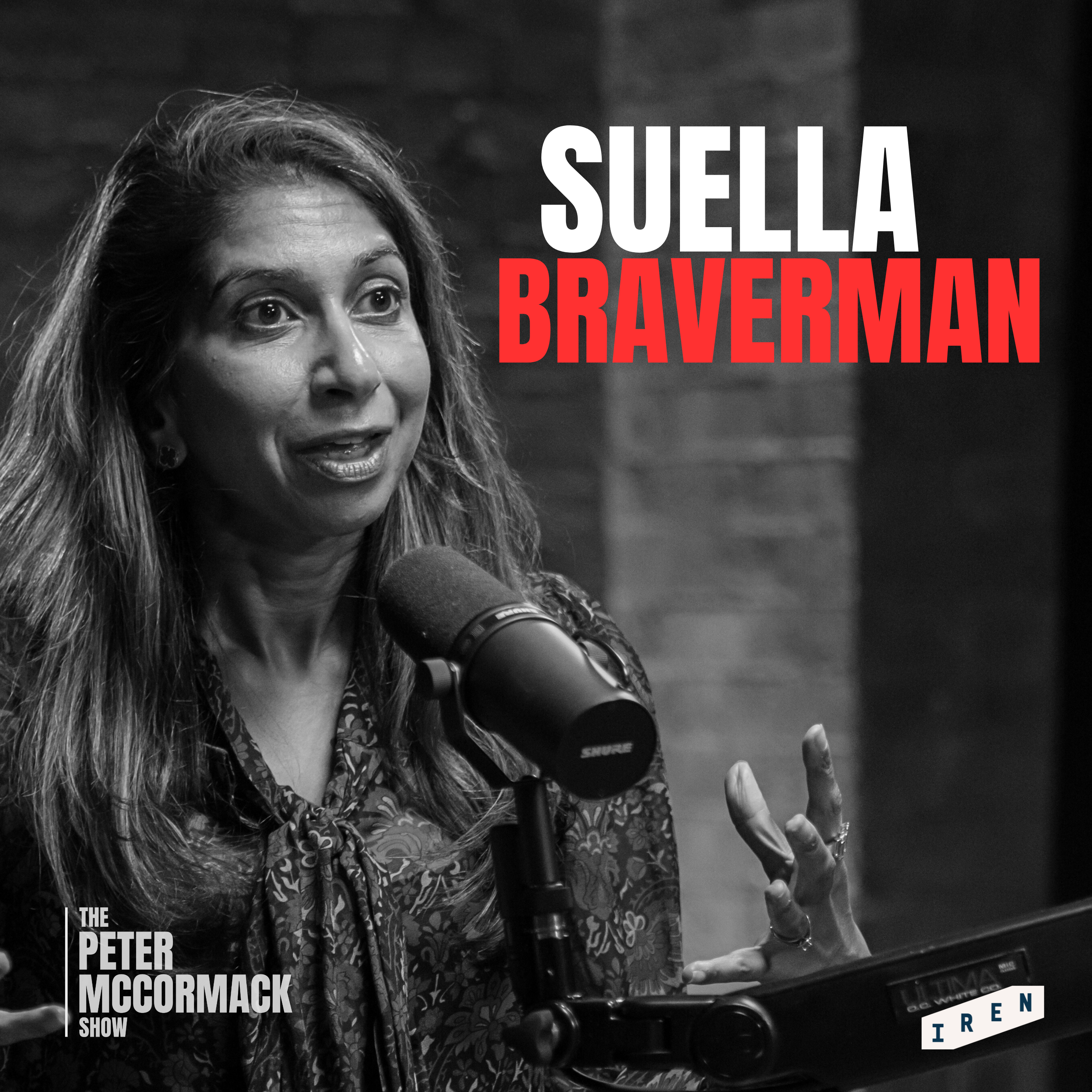 #112 - Suella Braverman - Too Conservative for the Conservative Party
#112 - Suella Braverman - Too Conservative for the Conservative PartySuella Braverman served as Home Secretary in the UK’s last Conservative government and was sacked for telling the truth. In this interview, we talk about: – Immigration, mass migration & legal loopholes – Grooming gangs, trans ideology & moral cowardice – Why she was forced out of cabinet – Why Rishi Sunak was the worst Prime Minister ever – The betrayal of British values by the police & media – Reform UK, Farage & the end of the Conservative Party
Published Friday
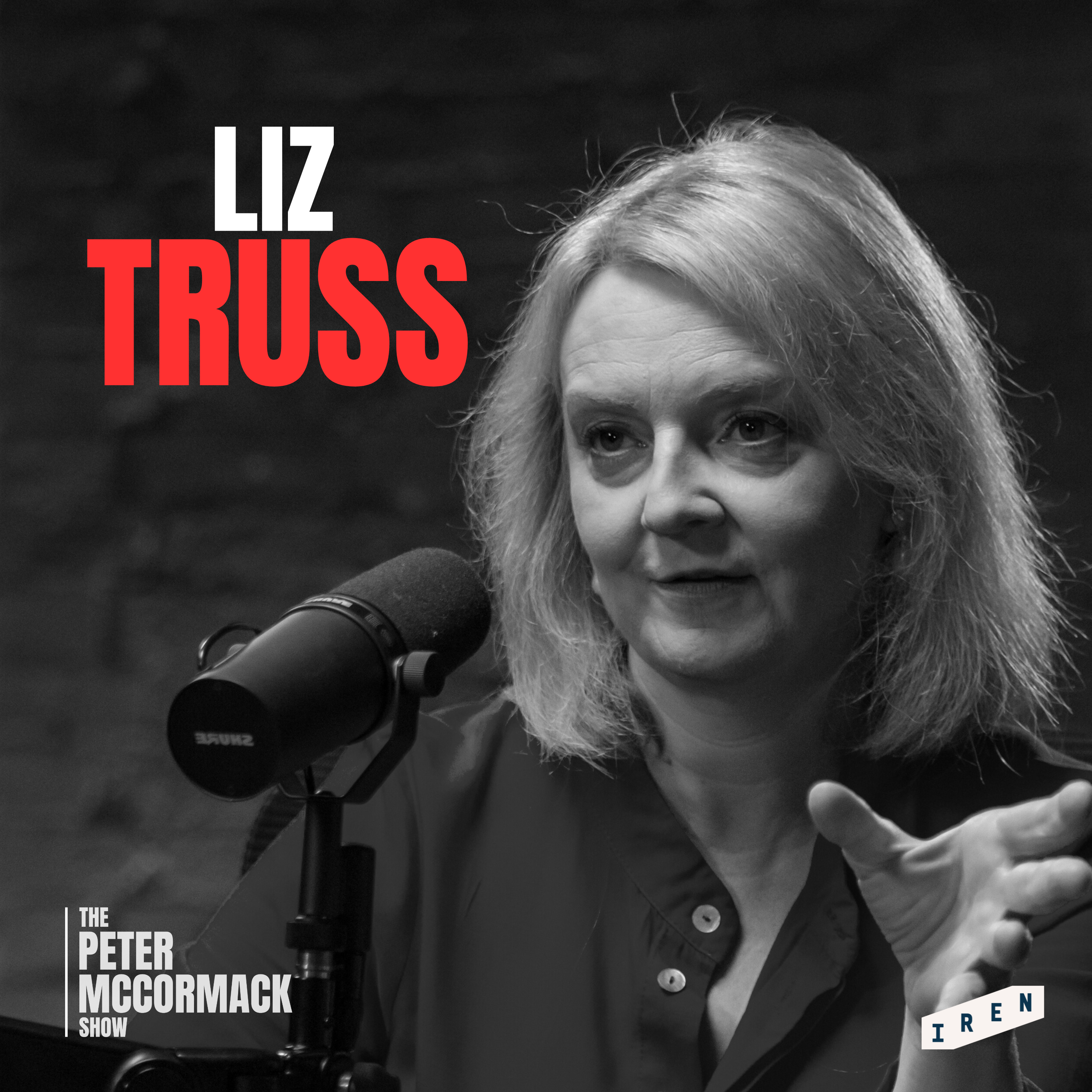 #111 - Liz truss - The UK Needs a Trump Style Revolution
#111 - Liz truss - The UK Needs a Trump Style RevolutionLiz Truss returns with a firestorm of truth about what really runs Britain & why the system fought her every step of the way. In this interview, we talk about: – Her resignation & the forces behind it – The real power of the Treasury, Bank of England & civil service – Why free speech is dead in Britain – Immigration, lawlessness & sectarian violence – Why the UK feels like a broken state – How to fix it: repeal the laws, fire the chiefs & fight back
Published 09/09
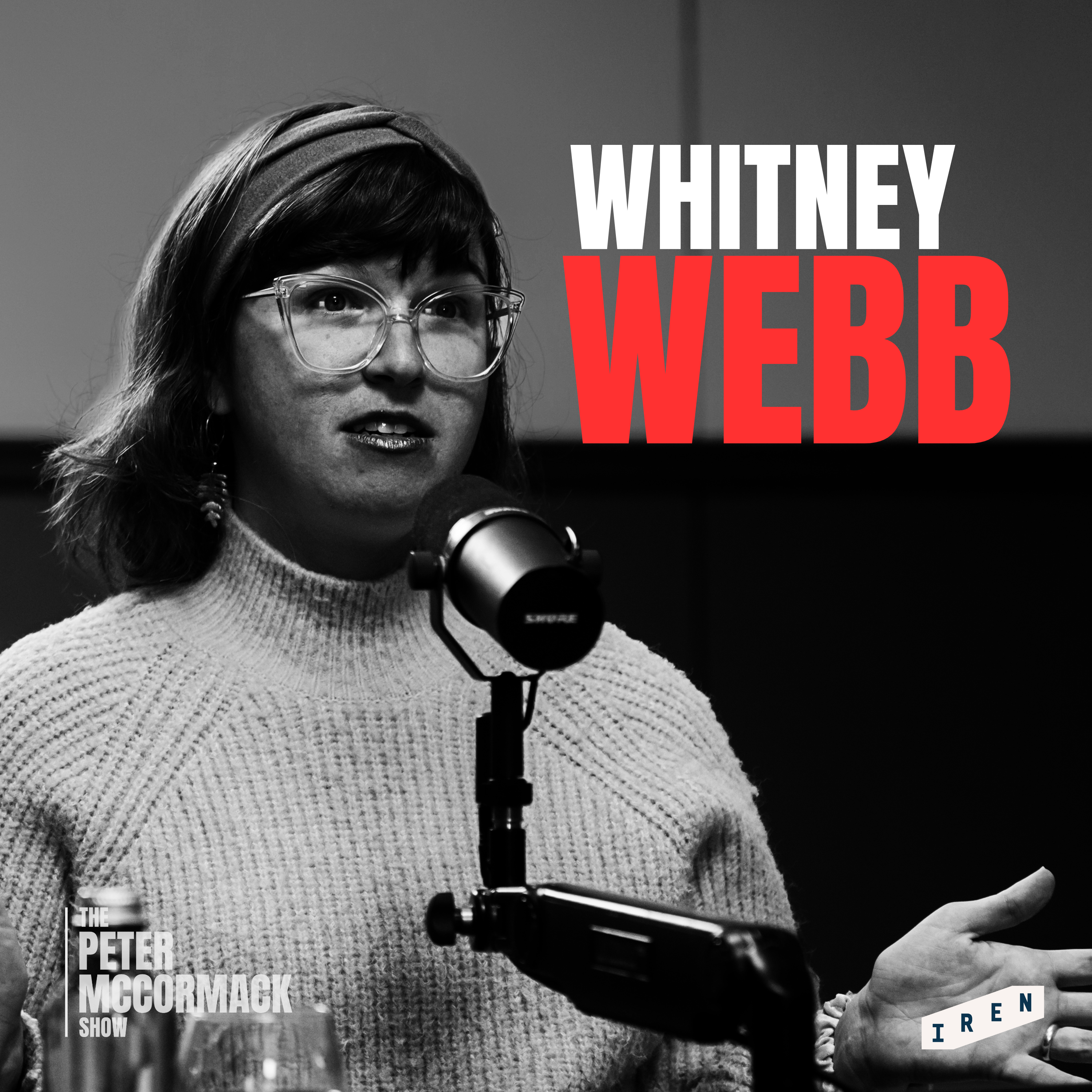 #110 - Whitney Webb - Epstein, Intelligence, and the Global Network of Power
#110 - Whitney Webb - Epstein, Intelligence, and the Global Network of PowerWhitney Webb is one of the world’s most fearless investigative journalists. In this episode, we go deep into the truth about Jeffrey Epstein and the global criminal network that protects itself through blackmail, surveillance and systemic corruption. This is not just about sex crimes. It’s about intelligence agencies, organised crime, arms trafficking, Silicon Valley and the politicians and billionaires who are all connected. We cover: – Why Epstein was never just one man – How blackmail is still the backbone of global power – The CIA, Mossad, and the myth of national security – Prince Andrew, Bill Clinton, Leslie Wexner and the Epstein web – Surveillance tech, Palantir and the war on privacy – Why no one in power will ever be held accountable – What we can still do: decentralisation, localism and the truth
Published 09/04
 #108 - Tommy Robinson - Dangerous or Misunderstood?
#108 - Tommy Robinson - Dangerous or Misunderstood?Tommy Robinson is one of the UK’s most controversial public figures. Demonised by the press, jailed repeatedly, and banned from social media. In this episode, we talk about free speech, grooming gangs, government lies, working-class rage & the weaponisation of the judiciary. We cover: – The media smears & public perception – His prison experiences & assassination attempts – The truth about grooming scandals & cover-ups – The fight for local order – Why he thinks Britain is on the edge of revolt – His criticisms of Farage, Reform UK & the case for Advance
Published 08/29
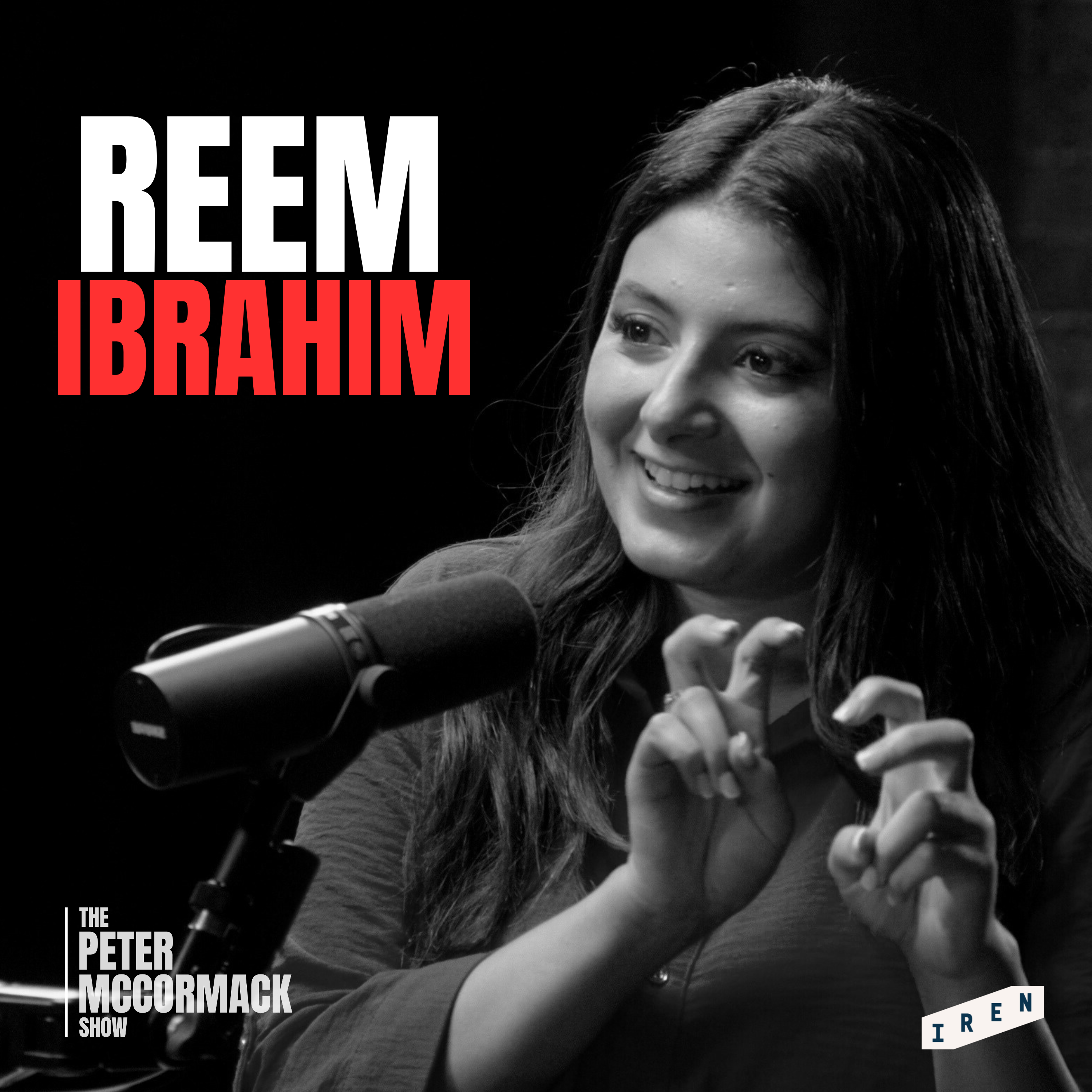 #107 - Reem Ibrahim - Free Markets, Capitalism & Liberty
#107 - Reem Ibrahim - Free Markets, Capitalism & LibertyReem Ibrahim is a 23-year-old libertarian and one of Britain’s most articulate defenders of freedom. In this powerful episode, we talk about her journey from Corbyn-supporting teen to Rothbard-reading free market radical. We cover everything from why the state fails, why the NHS is collapsing, to why young people are 53% socialist & what we can do about it.
Published 08/26
 #106 - Daniel O'Reilly - Keir Starmer’s a Wet Wipe
#106 - Daniel O'Reilly - Keir Starmer’s a Wet WipeDaniel O’Reilly, also known as Dapper Laughs, was one of Britain’s most cancelled comedians. Now he’s back sober, sharp, and with something to say. In this episode, we dive into comedy, cancel culture, fatherhood, immigration, addiction, the working class & why Britain feels broken.
Published 08/20
 #105 - Carl Benjamin - How Parallel Institutions Are Replacing the Government
#105 - Carl Benjamin - How Parallel Institutions Are Replacing the GovernmentCarl Benjamin joins me for a conversations about the UK’s decline. From moral collapse and socialism-by-stealth to town centre decay and mass apathy, we dive into what went wrong and why fixing it might not be possible through conventional politics. Carl and I share personal plans for Swindon and Bedford, compare strategies and ask whether it’s time to stop waiting for government and start building parallel institutions ourselves.
Published 08/18
 #104 - Fernando Nikolić - Bitcoin: The Last Defence Against Government Failure
#104 - Fernando Nikolić - Bitcoin: The Last Defence Against Government FailureFernando Nikolić is a Bitcoiner, a former VP at Blockstream, and the founder of Perception, a tool for tracking global Bitcoin narratives. He joins me to talk about Argentina’s collapse, the danger of inflation, and why fiat currency is the biggest gaslighting project in modern history. CONTACT PETE › Website - http://petermccormack.com › Feedback - https://www.petermccormack.com/contact › Email - [email protected] › Instagram - /mccormack555 › X/Twitter - https://x.com/petermccormack/ CONNECT WITH FERNANDO NIKOLIĆ › X/Twitter - https://x.com/basedlayer › Company - https://perception.to/ SPONSORS › IREN - https://www.iren.com/ › Ledger - https://www.ledger.com/ › Gemini - https://gemini.com/ › Casa - https://casa.io/ › Incogni - https://incogni.com/peter - - - - - - - - - - - - - - - - - - - - - - - - - - - - - - - - - - - - TIMESTAMPS: 00:00:00 – Introduction 00:01:18 – Why Britain Is Starting to Feel Like Argentina 00:02:37 – Is the UK Ready for a Milei Moment? 00:07:24 – Why Britain Needs Bitcoin 00:09:47 – The Return of Communist Ideology 00:22:28 – Policing, PR, and Political Theatre 00:30:00 – Private Sector vs Public Sector 00:36:46 – Why Bitcoin Is the Foundation for Real Change 00:43:52 – Bitcoin as Your Hedge Against the State 00:46:04 – Predictable Money vs Programmable Theft 00:52:18 – Argentina Warning to the West 00:55:27 – The Bitcoin Savings Mindset 00:59:00 – Why Inflation Kills Ambition 01:07:12 – Bitcoin’s BlackRock Era vs Its Cypherpunk Roots 01:13:36 – Has Bitcoin Become Boring? 01:17:24 – If Bitcoin Becomes the Monetary Base, Do We Win? 01:20:00 – Paper Bitcoin: Are We Recreating Gold’s Failure? 01:23:36 – What Happened to the Bitcoin Revolution? 01:26:04 – Fernando’s New Project: Perception 01:28:03 – Narrative Warfare & Media Fragmentation 01:34:00 – Are We Heading for a Post-Internet World? 01:38:00 – AI, Deep Fakes, Dead Internet 01:44:32 – Why Culture Matters More Than Content - - - - - - - - - - - - - - - - - - - - - - - - - - - - - - - - - - - - LISTEN / SUBSCRIBE TO THE PODCAST › Apple Podcasts: https://apple.co/40ruY9K › Spotify: https://spoti.fi/3Wc94Vu › Fountain: https://bit.ly/FountainPM › YouTube: https://bit.ly/YouTube_PM › Rumble: https://bit.ly/RumblePM FILMED BY CURTIS TAYLOR › https://www.curttaylor.co.uk/ › https://x.com/curttayloruk/ EDITED BY CONOR MCCORMACK › https://x.com/ConorM04
Published 08/15
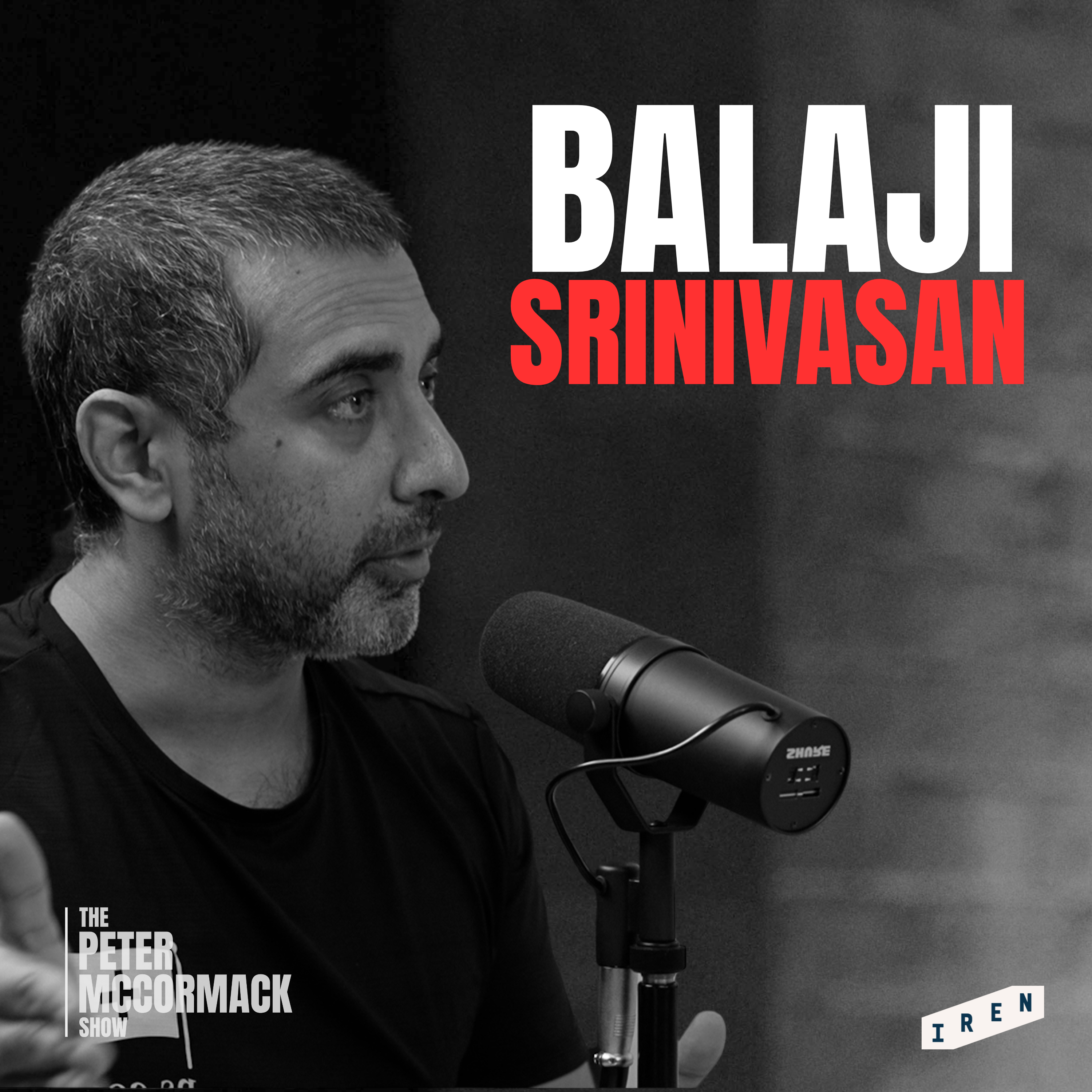 #100 - Balaji Srinivasan - The Collapse of the West
#100 - Balaji Srinivasan - The Collapse of the WestIn this episode of The Peter McCormack Show, I speak with Balaji Srinivasan, founder of the Network School (ns.com). We discuss the decline of the West, the rise of China, AI disruption, Bitcoin’s role in a collapsing dollar system, and why political polarisation is tearing America apart. Balaji explains why dollar inflation is global taxation, why U.S. empire is unsustainable, and how decentralised technology is reshaping money, media, and geopolitics. CONTACT PETE › Website - http://petermccormack.com › Feedback - https://www.petermccormack.com/contact › Email - [email protected] › Instagram - /mccormack555 › X/Twitter - https://x.com/petermccormack/ CONNECT WITH BALAJI SRINIVASAN › X/Twitter - https://x.com/balajis › Network School - https://ns.com SPONSORS › IREN - https://www.iren.com/ › Ledger - https://www.ledger.com/ › Gemini - https://gemini.com/ › Casa - https://casa.io/ › Incogni - https://incogni.com/peter - - - - - - - - - - - - - - - - - - - - - - - - - - - - - - - - - - - - TIMESTAMPS: 00:00:00 – Introduction 00:01:32 – West vs East: Power Rebalancing 00:06:33 – Asia Rising & West Declining 00:10:30 – Media Denial & Western Escapism 00:14:00 – Millionaire Migration Maps 00:18:20 – Exponential Collapse Trends Begin 00:20:10 – Red vs Blue vs China vs Internet 00:25:00 – Trade Wars & Tariff Illusions 00:33:05 – Blue America vs Internet 00:39:35 – The US Could Split Geographically 00:43:52 – Dollar Inflation = Global Taxation 00:49:30 – Left & Right Destroying Their Empire 01:07:20 – Super Bitcoinization Already Happening 01:26:00 – The Internet is the New West 01:32:00 – Debt Collapse vs Hyperinflation 01:42:00 – Foreign Trust in the US Collapsing 01:45:00 – Brain Drain: Talent Fleeing America 01:48:00 – India Rising, Fast & Quiet 01:54:00 – Bitcoin vs State Power 02:03:00 – America Cannot Handle Being #2 02:06:00 – Debt & Broken Promises 02:12:00 – Internet = West 3.0 02:14:30 – The Internet Will Replace the Empire - - - - - - - - - - - - - - - - - - - - - - - - - - - - - - - - - - - - LISTEN / SUBSCRIBE TO THE PODCAST › Apple Podcasts: https://apple.co/40ruY9K › Spotify: https://spoti.fi/3Wc94Vu › Fountain: https://bit.ly/FountainPM › YouTube: https://bit.ly/YouTube_PM › Rumble: https://bit.ly/RumblePM FILMED BY CURTIS TAYLOR https://www.curttaylor.co.uk/ https://x.com/curttayloruk/ EDITED BY CONOR MCCORMACK - - - - - - - - - - - - - - - - - - - - - - - - - - - - - - - - - - - -
Published 08/01
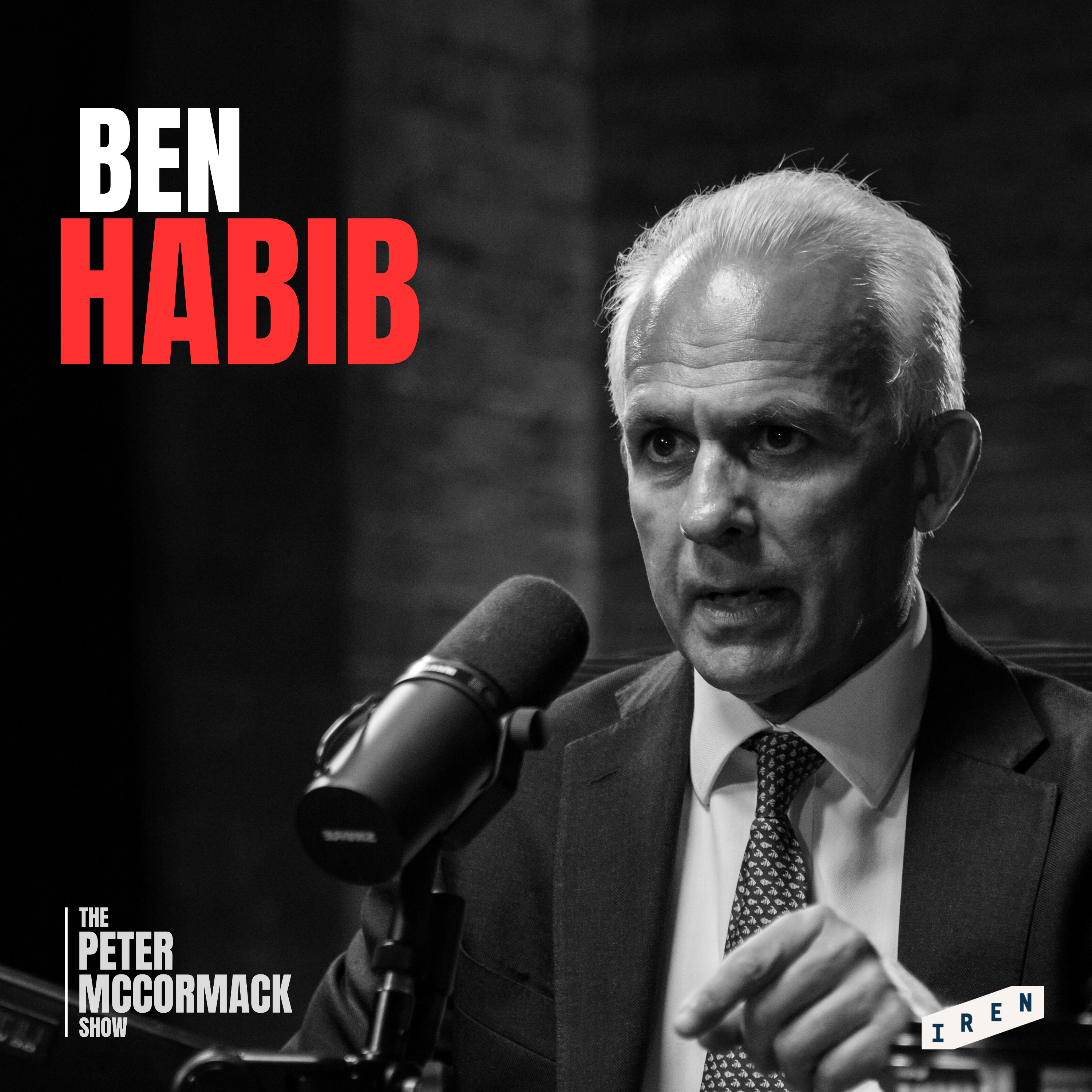 #099 - Ben Habib - Why The UK Needs a Revolution
#099 - Ben Habib - Why The UK Needs a RevolutionBusinessman, former MEP, and leader of Advance UK Ben Habib joins The Peter Mccormack Show to deliver a blistering critique of Britain’s political and constitutional decline. In this discussion, Ben exposes how Tony Blair’s reforms, the Human Rights Act, and decades of globalist policies have eroded British sovereignty, weakened our borders, and crippled our economy. We discuss the collapse of public trust, the migration crisis, EU entanglements, judicial overreach, and why Keir Starmer’s Labour government poses an existential threat to Britain’s future. Ben reveals Advance UK’s plan to rebuild the nation from the ground up: secure our borders, return power to Parliament, revive our economy, and defend British values. CONTACT PETE › Website - http://petermccormack.com › Feedback - https://www.petermccormack.com/contact › Email - [email protected] › Instagram - /mccormack555 › X/Twitter - https://x.com/petermccormack/ CONNECT WITH BEN HABIB › X/Twitter - https://x.com/benhabib6 SPONSORS › IREN - https://www.iren.com/ › Ledger - https://www.ledger.com/ › Gemini - https://gemini.com/ › Casa - https://casa.io/ - - - - - - - - - - - - - - - - - - - - - - - - - - - - - - - - - - - - TIMESTAMPS: 00:00:00 – Introduction 00:01:08 – The UK is in a downward spiral 00:02:23 – The rise of globalism 00:03:56 – Starmer’s economic vandalism 00:08:03 – The EU trap & sovereignty erosion 00:10:16 – Why Starmer is anti-British 00:13:59 – Red tape vs economic freedom 00:16:02 – Local councils are broken 00:17:35 – Why businesses are dying 00:18:41 – The cost of firing people 00:19:56 – Civil unrest is coming 00:34:21 – The Human Rights Act must go 00:40:31 – Shaming Tony Blair 00:43:02 – Advance UK vs Reform 00:47:56 – Free speech & Lucy Connolly 00:50:33 – Reform’s failures & Farage 00:59:33 – Advance’s College model 01:12:33 – Tommy Robinson & political prisoners 01:17:04 – What Advance would do in power 01:22:53 – Ditch Net Zero, cut welfare 01:25:50 – Where to cut government 01:26:13 – What drives Ben Habib 01:27:26 – Final thoughts - - - - - - - - - - - - - - - - - - - - - - - - - - - - - - - - - - - - LISTEN / SUBSCRIBE TO THE PODCAST › Apple Podcasts: https://apple.co/40ruY9K › Spotify: https://spoti.fi/3Wc94Vu › Fountain: https://bit.ly/FountainPM › YouTube: https://bit.ly/YouTube_PM › Rumble: https://bit.ly/RumblePM FILMED BY CURTIS TAYLOR https://www.curttaylor.co.uk/ https://x.com/curttayloruk/ EDITED BY CONOR MCCORMACK - - - - - - - - - - - - - - - - - - - - - - - - - - - - - - - - - - - -
Published 08/01
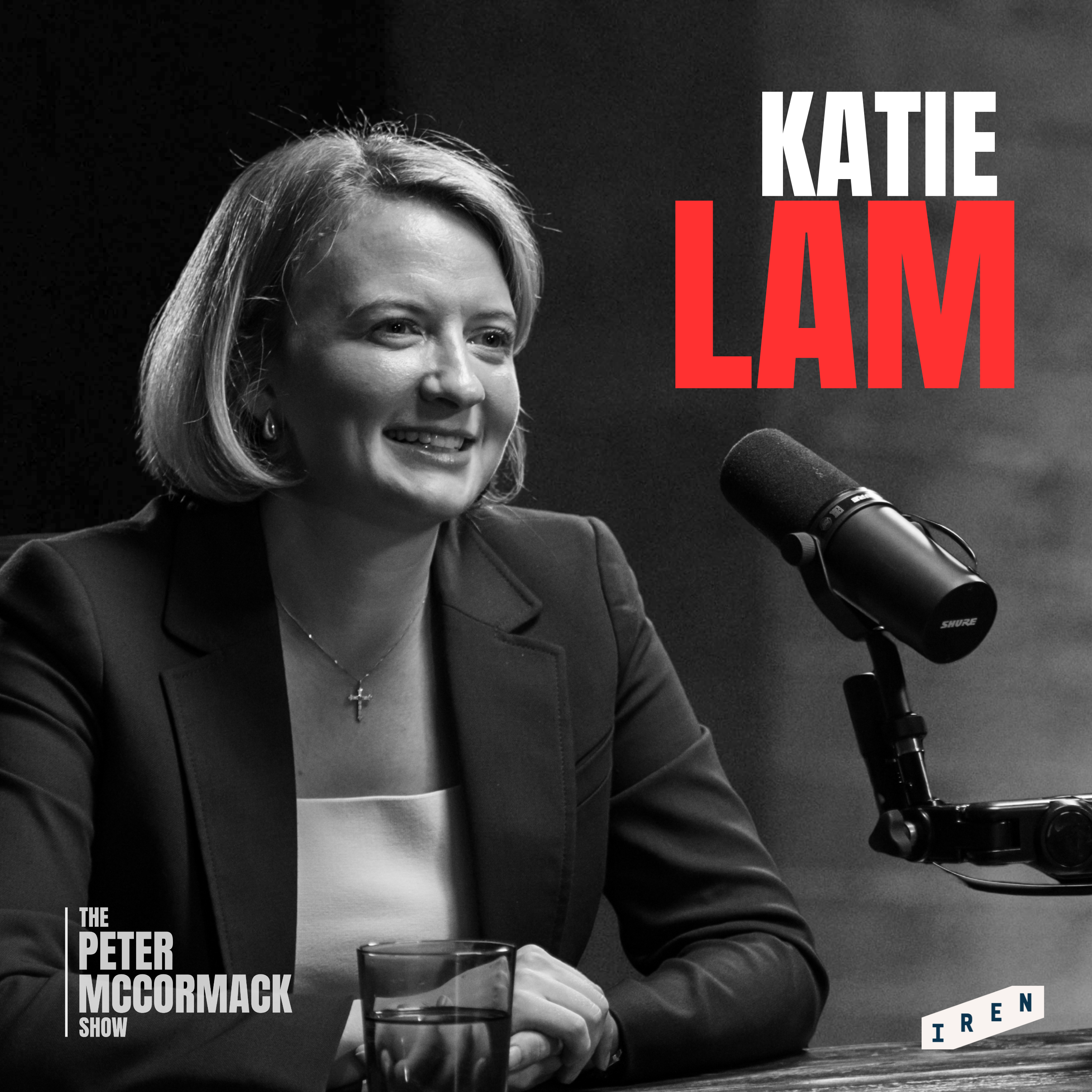 #098 - Katie Lam - The CONSERVATIVE Fightback: Borders, Belief & BRITAIN
#098 - Katie Lam - The CONSERVATIVE Fightback: Borders, Belief & BRITAINKatie Lam, a Conservative parliamentary candidate and former senior civil servant, joins The Peter McCormack Show to deliver a critique of Britain’s cultural decay, political cowardice and the institutional failures undermining national trust. From grooming gangs and immigration to women’s safety and the collapse of political consensus, Lam calls for a bold new conservatism rooted in honesty, dignity and real public service. We discuss how the Left abandoned fairness, how the Right lost courage, and why Britain needs a cultural revival not just another election cycle. CONTACT PETE › Website - http://petermccormack.com › Feedback - https://www.petermccormack.com/contact › Email - [email protected] › Instagram - /mccormack555 › X/Twitter - https://x.com/petermccormack/ CONNECT WITH KATIE LAM › X/Twitter - https://x.com/katie_lam_mp SPONSORS › IREN - https://www.iren.com/ › Ledger - https://www.ledger.com/ › Gemini - https://gemini.com/ › Casa - https://casa.io/ - - - - - - - - - - - - - - - - - - - - - - - - - - - - - - - - - - - - TIMESTAMPS: 00:00:00 – Introduction 00:01:17 – Why politics is broken 00:03:45 – Immigration promises repeatedly broken 00:06:34 – Life inside Parliament 00:09:15 – Grooming gangs & cover-ups 00:18:50 – No justice for cover-up 00:21:39 – Community relations over victims 00:26:23 – System punishes rule-followers 00:30:52 – Bureaucracy & debt threats 00:35:14 – Anarcho-tyranny in Britain 00:38:57 – Taxes, red tape rising 00:43:25 – Labour’s economic fantasy 00:46:42 – Why small businesses struggle 00:50:10 – Can Tories rebuild trust? 00:52:20 – Should we leave ECHR? 00:56:47 – What Liz Truss got right 00:58:20 – Assisted dying & abortion 01:04:13 – Britain's identity crisis 01:08:00 – Katie’s return to faith 01:11:25 – Assimilation vs. multiculturalism 01:14:10 – What is British culture? 01:16:47 – Katie’s political mission 01:18:57 – Final thoughts - - - - - - - - - - - - - - - - - - - - - - - - - - - - - - - - - - - - LISTEN / SUBSCRIBE TO THE PODCAST › Apple Podcasts: https://apple.co/40ruY9K › Spotify: https://spoti.fi/3Wc94Vu › Fountain: https://bit.ly/FountainPM › YouTube: https://bit.ly/YouTube_PM › Rumble: https://bit.ly/RumblePM FILMED BY CURTIS TAYLOR https://www.curttaylor.co.uk/ https://x.com/curttayloruk/ EDITED BY CONOR MCCORMACK https://x.com/ConorM04 - - - - - - - - - - - - - - - - - - - - - - - - - - - - - - - - - - - -
Published 08/01